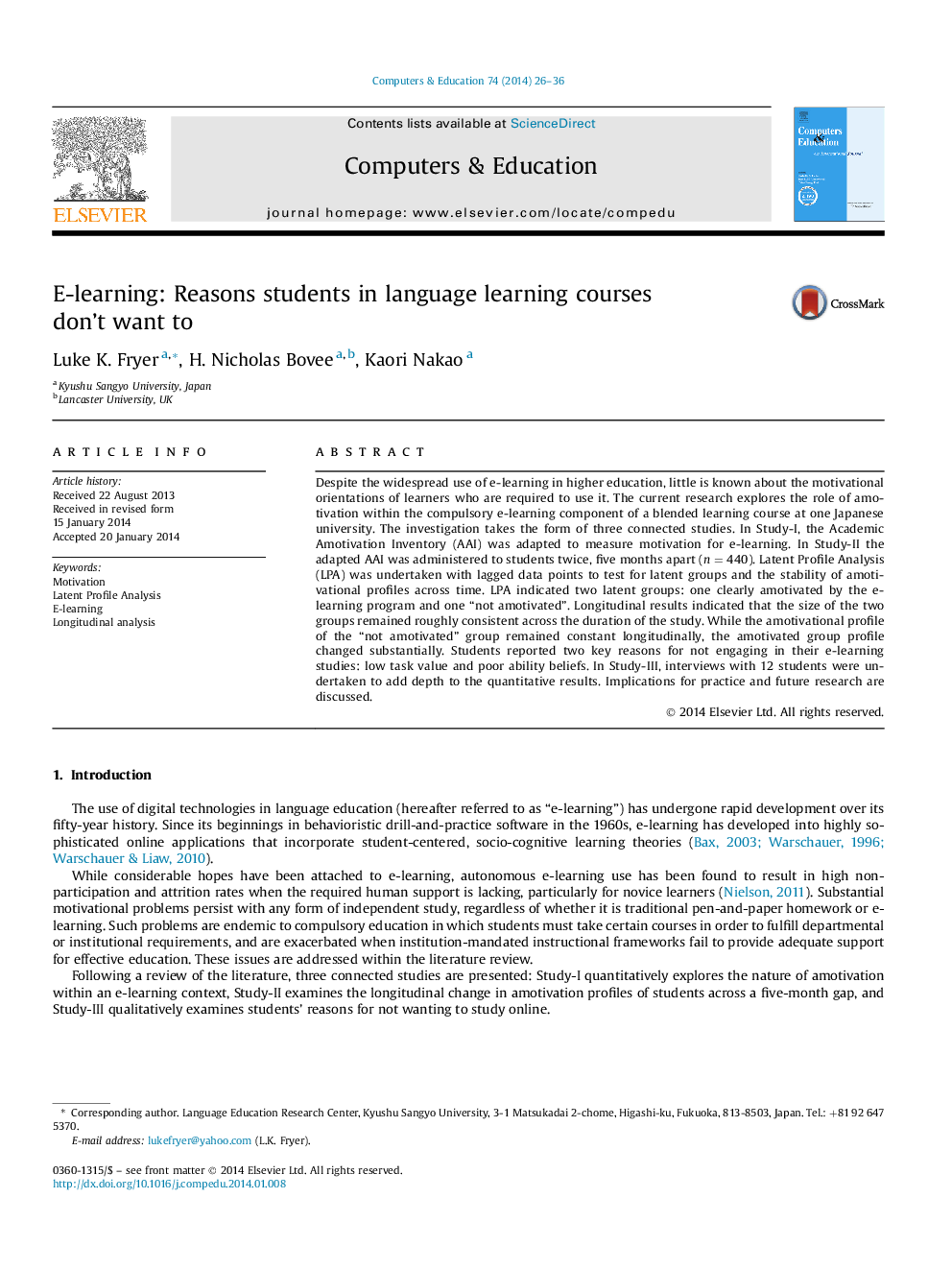| کد مقاله | کد نشریه | سال انتشار | مقاله انگلیسی | نسخه تمام متن |
|---|---|---|---|---|
| 348399 | 618185 | 2014 | 11 صفحه PDF | دانلود رایگان |
• Identified and replicated (lagged five months) two groups of e-learners.
• The “not amotivated” group profile was stable.
• The amotivated group profile were less efficacious and valued the content less.
• Qualitatively, students had practical reasons for low efficacy and value beliefs.
Despite the widespread use of e-learning in higher education, little is known about the motivational orientations of learners who are required to use it. The current research explores the role of amotivation within the compulsory e-learning component of a blended learning course at one Japanese university. The investigation takes the form of three connected studies. In Study-I, the Academic Amotivation Inventory (AAI) was adapted to measure motivation for e-learning. In Study-II the adapted AAI was administered to students twice, five months apart (n = 440). Latent Profile Analysis (LPA) was undertaken with lagged data points to test for latent groups and the stability of amotivational profiles across time. LPA indicated two latent groups: one clearly amotivated by the e-learning program and one “not amotivated”. Longitudinal results indicated that the size of the two groups remained roughly consistent across the duration of the study. While the amotivational profile of the “not amotivated” group remained constant longitudinally, the amotivated group profile changed substantially. Students reported two key reasons for not engaging in their e-learning studies: low task value and poor ability beliefs. In Study-III, interviews with 12 students were undertaken to add depth to the quantitative results. Implications for practice and future research are discussed.
Journal: Computers & Education - Volume 74, May 2014, Pages 26–36
